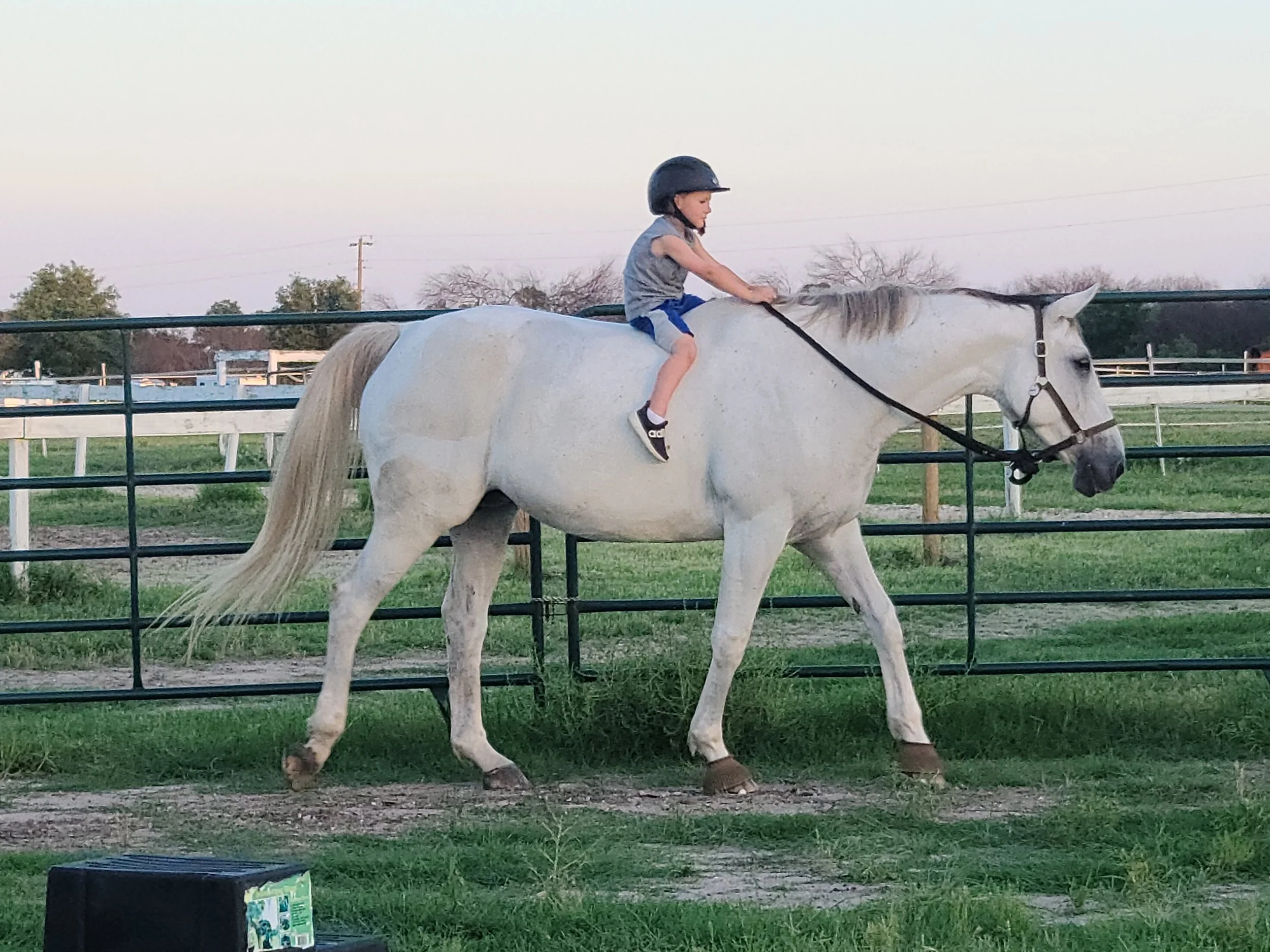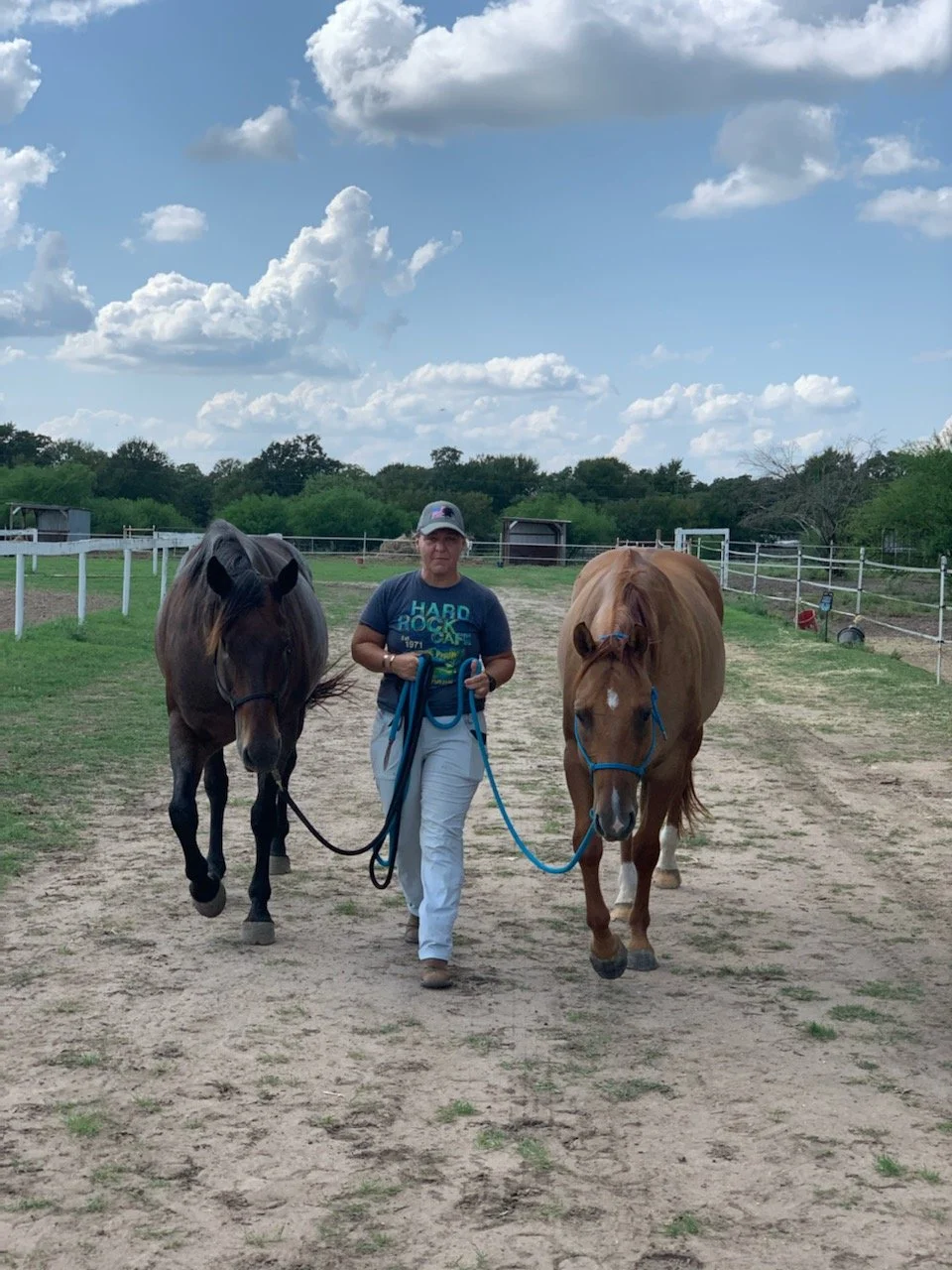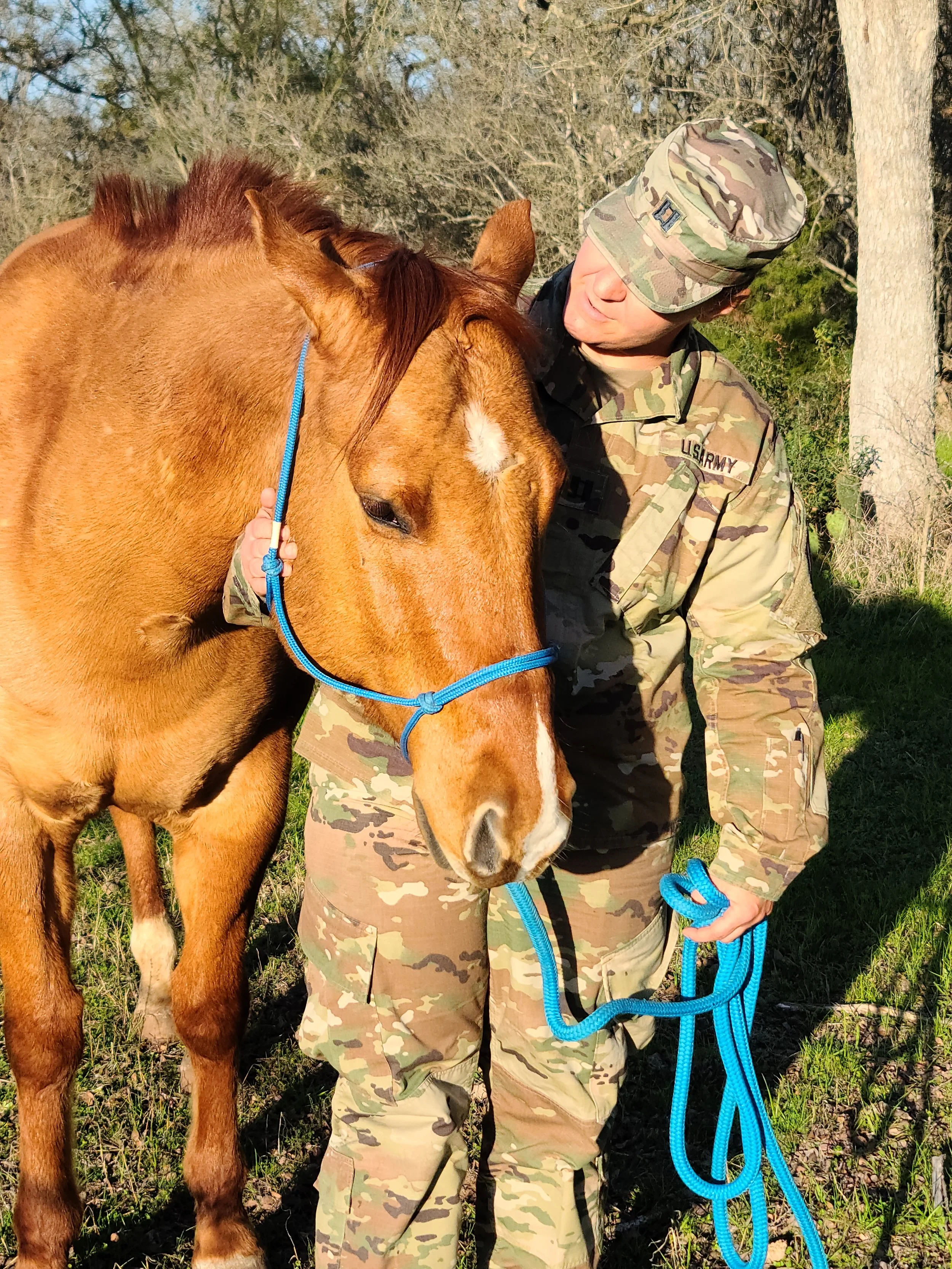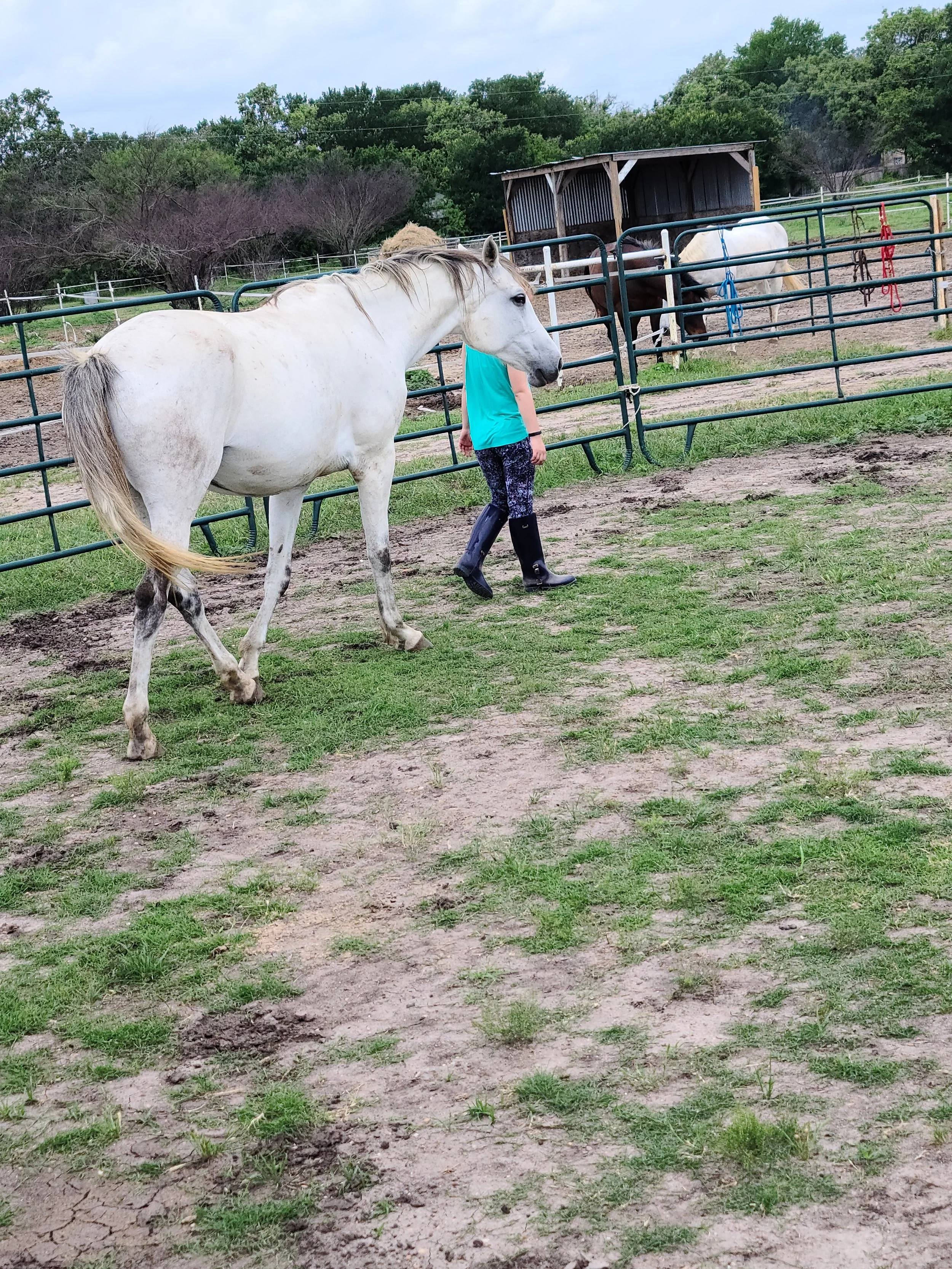Equine Assisted Psychotherapy offers a profound shift from conventional therapy by integrating movement, nature, and emotional congruence in a way that often accelerate insight and healing.
Equine Assisted Psychotherapy (EAP) is an experiential form of therapy that involves working with horses to address issues resulting from the traumatic effects of abuse, neglect, combat, grief and loss, eating disorders, depression, anxiety, chronic illness and other adverse life circumstances. People often develop negative coping mechanisms and unhealthy relationship patterns as a result of relational wounds. Similarly, horses are prey animals and spend a great deal of their time in their brainstem, or survival mode (fight, flight or freeze), much as trauma victims do. Horses will respond honestly and directly to whatever behaviors and internal states a client presents to them in the round pen, allowing the client to experience immediate and helpful feedback about the communication and relational patterns they create with the people in their lives. Horses provide opportunities to practice assertive communication, set boundaries, make requests, learn emotional regulation skills, and build trust and confidence in a mutual partnership. All of the skills used to build relationship with the horse are transferable outside the round pen to human relationships.
Populations That May Benefit
Veterans and First Responders
Individuals who have experienced traumatic event(s)
Individuals recovering from abuse or neglect
Individuals with addiction or substance use disorders
Children and adolescents with behavioral issue
“In the presence of a horse, we find the truth of ourselves — unspoken, unfiltered, and utterly honest.”

Benefits of Equine Assisted Psychotherapy
Emotional & Psychological Benefits
Promotes Emotional Awareness
-Horses respond to human emotions, helping clients become more aware of their own feelings and body language.
-Clients often identify patterns of anxiety, anger, or avoidance in real time.
Non-Judgmental Environment
-Horses offer unconditional, non-verbal feedback without judgment, creating a safe emotional space for clients.
Reduce Symptoms of Trauma, Anxiety & Depression
-EAP is particularly effective in trauma-informed care, helping regulate the nervous system through somatic engagement.
-Grounding techniques with horses support emotional regulation
Improves Self-Esteem & Confidence
-Accomplishing tasks with horses builds confidence and a sense of agency — especially meaningful for clients who have felt powerless.
Cognitive & Behavioral Benefits
Enhances Communications & Social Skills
-Working with horses requires clear, calm, and intentional communication — skills that translate into daily relationships.
Develops Problem Solving & Executive Functioning
-Sessions often include obstacles based on goal-directed activities, fostering critical thinking and decision making.
Teaches Boundaries & Respect
-Clients learn to assert themselves, set healthy limits, and respect others’ space through direct interaction with horses
Somatic & Experiential Benefits
Mind-Body Connection & Grounding
-The rhythmic movement and presence of the horse promote mindfulness and reduce dissociation.
-Helps clients reconnect with their bodies, a vital part of trauma recovery.
Regulates Nervous System
-Interaction with horses can activate the parasympathetic nervous system, calming the body’s stress response
Engages Clients who Struggle with Talk Therapy
-Especially effective for clients who have difficulty verbalizing their thoughts or who are resistant to traditional therapy settings
I am trained in Natural Lifemanship model of EAP (www.naturallifemanship.com) and offer this therapy at Scattered Oaks Farm in Manor (See Services for Address).








